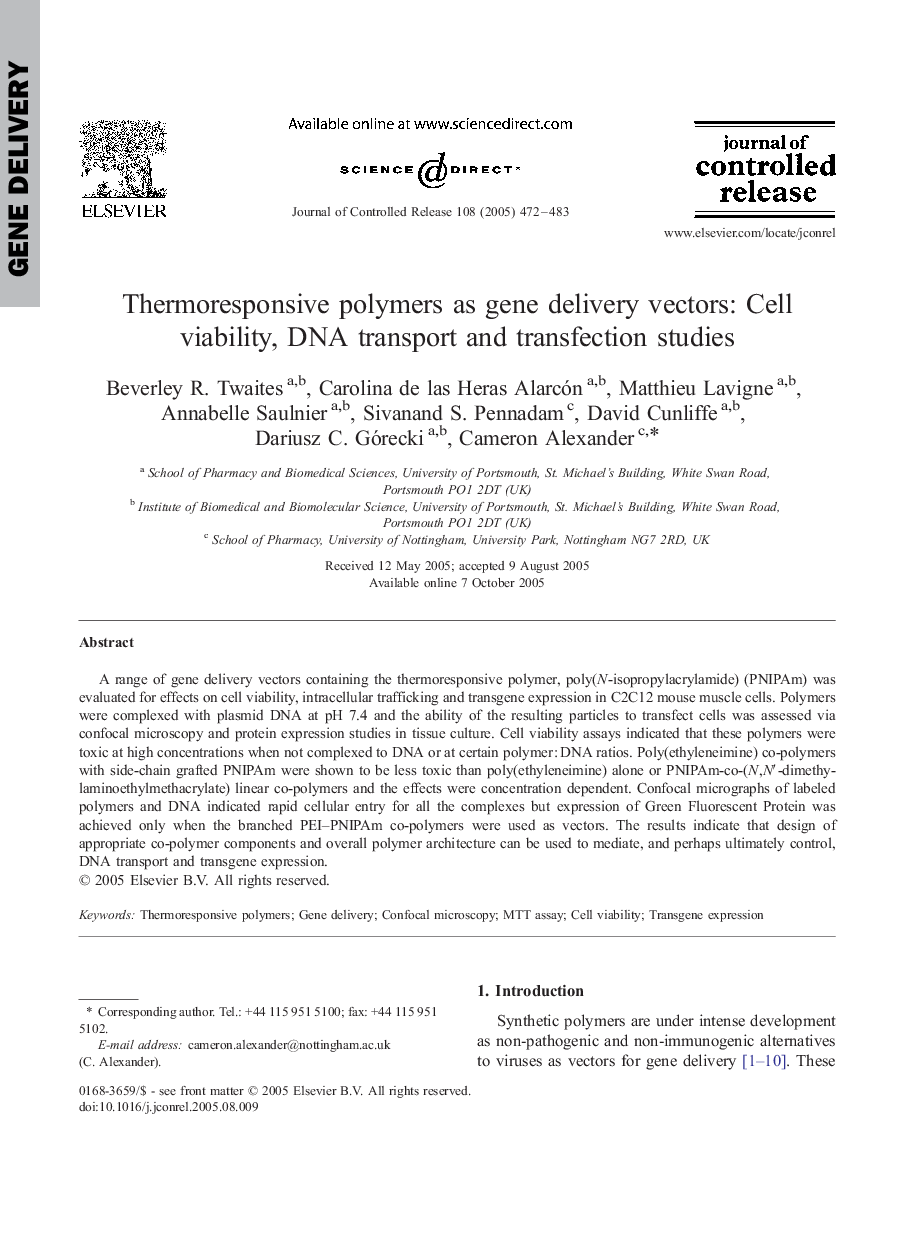| Article ID | Journal | Published Year | Pages | File Type |
|---|---|---|---|---|
| 9774634 | Journal of Controlled Release | 2005 | 12 Pages |
Abstract
A range of gene delivery vectors containing the thermoresponsive polymer, poly(N-isopropylacrylamide) (PNIPAm) was evaluated for effects on cell viability, intracellular trafficking and transgene expression in C2C12 mouse muscle cells. Polymers were complexed with plasmid DNA at pH 7.4 and the ability of the resulting particles to transfect cells was assessed via confocal microscopy and protein expression studies in tissue culture. Cell viability assays indicated that these polymers were toxic at high concentrations when not complexed to DNA or at certain polymer : DNA ratios. Poly(ethyleneimine) co-polymers with side-chain grafted PNIPAm were shown to be less toxic than poly(ethyleneimine) alone or PNIPAm-co-(N,Nâ²-dimethylaminoethylmethacrylate) linear co-polymers and the effects were concentration dependent. Confocal micrographs of labeled polymers and DNA indicated rapid cellular entry for all the complexes but expression of Green Fluorescent Protein was achieved only when the branched PEI-PNIPAm co-polymers were used as vectors. The results indicate that design of appropriate co-polymer components and overall polymer architecture can be used to mediate, and perhaps ultimately control, DNA transport and transgene expression.
Keywords
Related Topics
Physical Sciences and Engineering
Materials Science
Biomaterials
Authors
Beverley R. Twaites, Carolina de las Heras Alarcón, Matthieu Lavigne, Annabelle Saulnier, Sivanand S. Pennadam, David Cunliffe, Dariusz C. Górecki, Cameron Alexander,
